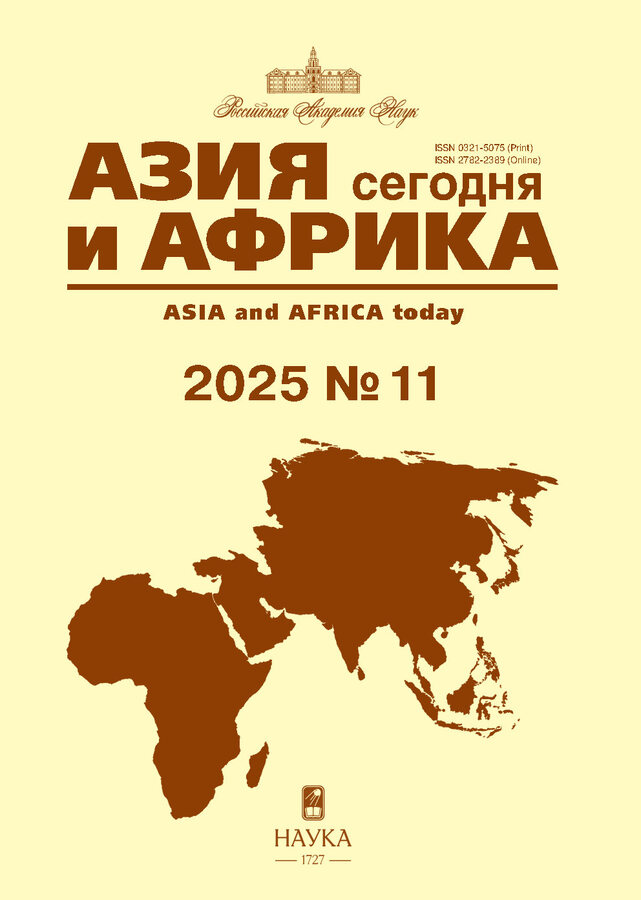South Africa's and Nigeria's Activities at the UN: Quest for Leadership in Africa
- Authors: Panin N.A1
-
Affiliations:
- Institute for African Studies, Russian Academy of Sciences
- Issue: No 11 (2025)
- Pages: 75-82
- Section: Post-graduate tribune
- URL: https://journals.eco-vector.com/0321-5075/article/view/696469
- DOI: https://doi.org/10.31857/S0321507525110088
- ID: 696469
Cite item
Abstract
The article offers a comparative analysis of South Africa's and Nigeria's foreign policy behaviour at the United Nations, viewed through the lens of their regional leadership ambitions. The author proposes a three-pronged approach to the analysis, combining quantitative assessment of voting practices in the General Assembly, content analysis of addresses to the UNGA and an exploration of country-specific priorities, strategies and partnerships within the Security Council. The study suggests that South Africa acts more assertively across UN structures, advancing both the pan-African agenda and its own diplomatic initiatives. Pretoria effectively balances regional interests with those of key external partners, thereby reinforcing its image as a continental leader. Nigeria, by contrast, tends to focus on issues linked to domestic challenges or its immediate subregional context. This inward orientation limits Abuja's potential to articulate broader African interests on the global stage. The divergence in approaches highlights South Africa's comparative advantage in using multilateral diplomacy to strengthen its leadership position within Africa and expand its international influence through the UN system.
Keywords
About the authors
N. A Panin
Institute for African Studies, Russian Academy of Sciences
Email: contact@panin-nikita.ru
ORCID iD: 0009-0000-1802-9694
Post-graduate student, Junior Researcher, Centre for Russian-African Relations and African Foreign Policies Moscow, Russia
References
- Panin N.A. 2023. Multilateral Diplomacy. *Africa 2023: Opportunities and Risks. Expert Handbook*. Moscow. (In Russ.)
- Panke D. 2021. Compensating for limitations in domestic output performance? Member state delegation of policy competencies to regional international organizations. *International Relations*. Vol. 35. № 1. Рр. 90–125. doi: 10.1177/0047117820970320
- Oksenberg M., Economy E. (Eds.). 1999. China Joins the World: Progress and Prospects. N.Y.: Council on Foreign Relations Press.
- Ball M. 1951. Bloc Voting in the General Assembly. *International Organization*. Vol. 5. Рр. 3–31.
- Panin N.A. 2023. Voting Practices of Sub-Saharan States of Africa at the UN General Assembly: Latest Trends and Underlying Strategies. *Working Paper № 74*. Moscow. (In Russ.)
- Jönsson C., Hall M. 2003. Communication: An Essential Aspect of Diplomacy. *International Studies Perspectives*. Vol. 4. № 2. Рр. 195–210. doi: 10.1111/1528-3577.402009
- Chayes A., Handler Chayes A. 1995. Revitalizing International Organizations. *The New Sovereignty: Compliance with International Regulatory Agreements*. Рр. 271–286. Harvard University Press. doi: 10.2307/j.ctv1pnes3m.17
Supplementary files











